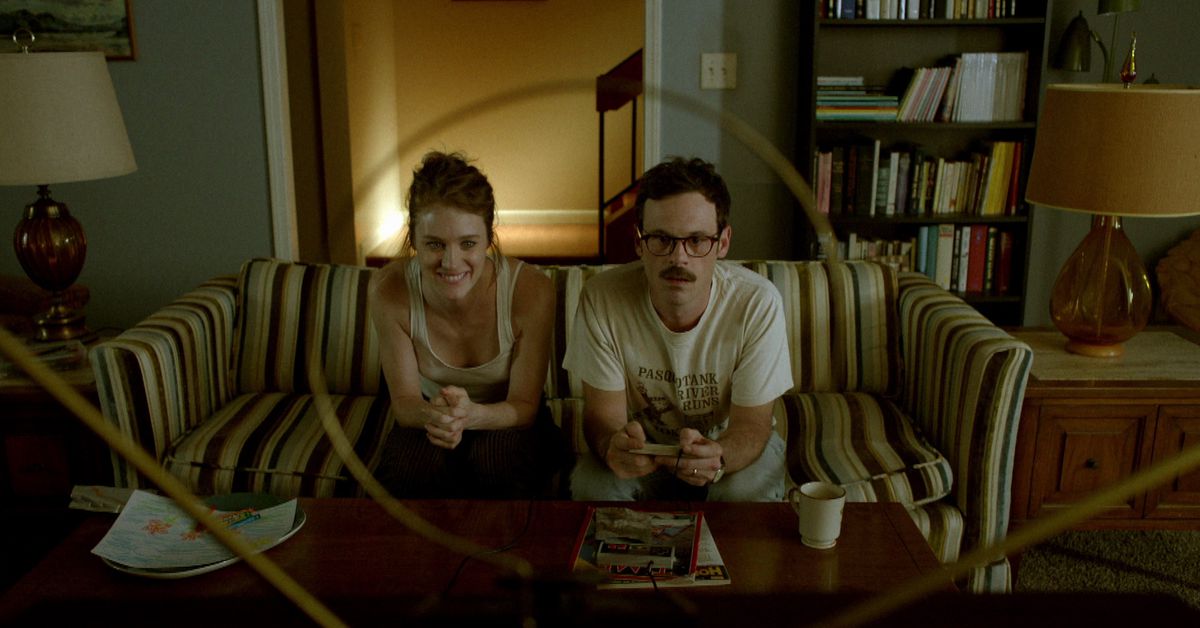Despite numerous advances in the medium, video games largely remain something of a (usually solitary) frivolity, at least when it comes to on-screen depictions. Even when a show is ostensibly about games — your Players, your Mythic Quests — it’s really all about the interactions that occur outside the games, or the process of their creation.
Halt and Catch Fire would appear to fit into this. The much-beloved AMC show made no secret of the fact that it was never really about the technology covered in a season; in the words of Joe MacMillan (Lee Pace), the computer was always “the thing that gets us to the thing,” a vector for connection, expression, or some other deeper human need. In that way, Halt and Catch Fire understands the draw of video games better than any show that’s come before it.
It would first demonstrate this in its second season when — in the aftermath of a scandal and a company liquidation — Cameron Howe (Mackenzie Davis) left computer company Cardiff Electric to form Mutiny, a primitive attempt at online gaming. The seed for the rest of the season comes when Donna Clark (Kerry Bishé) notices two players still connected after finishing a game, spurring the creation of a chat board. Even with the limitations of dial-up and 1-bit graphics, people still found ways to communicate.
Many shows set in the ’80s would feature Super Mario Bros. on the NES. But not many would follow two adults over the course of several days trying to beat it, giving tips on how to get past a tricky area, and trading off when one gets tired so they don’t have to restart the long ordeal again, all ending with them having grown closer to each other as well as with a deeper understanding of the people in their orbits. It’s less about nostalgia and more proving how technology — no matter how rudimentary — can lead to moments of insight and catharsis.
Season 4 takes this idea and furthers the distance: Cam has released a new Myst–like game called Pilgrim that no one seems to understand. No one, that is, except for Donna, who solves it all on her own. By this point in the show, Cam and Donna have had a falling out, whatever bond they had shared that made them such great co-owners destroyed by hubris and backstabbing. It’s a beautiful scene, one that taps into Cam’s desire to make a sort of higher art form through her games, and Donna remembering when she used to actually do something, problem solving rather than funding projects. It spurs on their hasty reconnection, and one of Halt and Catch Fire’s many strengths is the willingness to let each part of the ensemble be the villain for a season or so. Donna’s betrayal still stings; she’s pushing people to make a competitor to her friends’ new company. But there’s always an understanding of where someone’s coming from, and in this case, it’s a desire — subconscious or otherwise — to apologize and fix a relationship that might be broken beyond repair. Pilgrim is a perfect symbol for their relationship, and the idea that there can be 100 people who play your game, but you just need one person who understands it.
Halt and Catch Fire excels at these small moments of beauty, sometimes as simple as the way a certain line is read. Video games aren’t always the main plotline, but it understands the inherent draw of them, both in their communal aspects and artistic prospects. After all, what is a game like Animal Well or Outer Wilds but an attempt to draw you into the minds of the creators while simultaneously leaning on others for support? The characters may have failed and failed again over the course of the show, but they’ll never stop searching for that burst of connection no matter where it might be found.
Halt and Catch Fire is streaming on The Roku Channel and AMC Plus.

